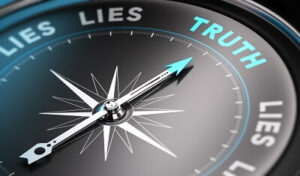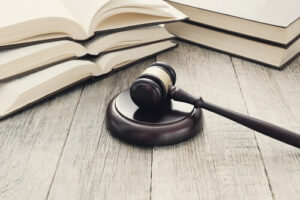
The common law defence of fair and accurate reports refers to reports made in relation to judicial proceedings[1], quasi-judicial proceedings, foreign judicial proceedings, parliamentary proceedings and other proceedings. Notably, the defence of fair and accurate reports is an extension of the defence of qualified privilege and is only applicable in certain circumstances[2].
The main difference between defence of fair and accurate reports and the defence of qualified privilege is that the defence of fair and accurate reports applies to occasions where there is a public interest in a proceedings, whereas qualified privilege extends to matters where each separate party involved has an interest in the subject matter[3].
It is generally necessary to establish the subject matter of a proceeding for which a report or publication has been made to determine whether or not there is a public interest in the subject matter before the defence of fair and accurate reports can be applied[4]. However, where a report is published only to a limited number of people, and it can be established that those people do have an interest in the proceeding in question, the defence may also apply.
It is important to note that for the defence of fair and accurate reports to apply, the report or publication made must be substantially accurate with respect to the facts of the proceeding so that it does not alter the impression of the content[5]. The test applied by the courts in determining whether a report is substantially accurate is determining whether the average person or a lawyer would believe the report is made fairly. The accuracy of a particular report will be determined based on the facts of each individual case[7]. Similarly, accuracy needs to be tested by the ordinary, reasonable reader test[8].
Judicial Proceedings
Judicial proceedings are protected under the defence of fair and accurate reports where the reports are fair and accurate but also published without malice[9]. There is an inherent public interest component to any judicial proceedings, which is the basis for fair and accurate reports to be made of such proceedings for the purpose of educating and informing the public on the court process[11]. The defence of fair and accurate reports exists to protect such reports from defamatory claims[10]. It is important to note that the protection awarded under this defence only applies to reports covering judicial proceedings conducted in open court[12].
In the case of Ryalls v Leader[13], the court held that the defence of fair and accurate reports should be applied in its widest sense in order to allow the public knowledge of what happens in court. However, it is not sufficient merely to report defamatory statements made during a judicial proceeding for the defence to apply; defamatory statements reported must have formed part of the proceedings to be considered a fair and accurate report[14]. In determining whether defamatory statements form part of a judicial proceeding, the courts must consider both fact and degree of the statements.
Importantly, to attract the defence of fair and accurate reports, a report does not need to be complete, nor does it need to be published after the completion of proceedings. Additionally, a defendant seeking to rely on the defence does need not prove that the statements made were false[15].
Quasi-Judicial and Other Proceedings
The defence of fair and accurate reports also applies to reports of quasi-judicial proceedings, provided that it is in the public interest to do so[16]. Whether or not it is in the public interest is a matter for determination by the court [17]. In determining whether the protection of such documents is in the public interest, the court will take into consideration[18]:
- The nature of the body before proceedings were conducted;
- The character of the report;
- The public interest in the proceedings; and
- The duties of the body in question to the public.
In the case of Allbutt v General Council of Medical Education and Registration[19], the court held that reports covering proceedings involving a professional body disciplining medical practitioners were protected by the defence of fair and accurate reports as it was stated that substantially accurate reports of such proceedings sufficiently satisfied the requirement for the matter to be of public interest.
Foreign Judicial Proceedings
While there exists no general defence covering fair and accurate reports of foreign judicial proceedings, the general defence of fair and accurate proceedings ay apply to foreign proceedings provided that the rules of evidence and procedure pertaining to each country in question are parallel with, and accepting to, the common law and open justice[20]. This includes where the defamatory matter reported is held to be of public interest[21]. This public interest must be “a legitimate and proper interest on the part of the public, rather than mere idle curiosity or a desire for gossip[22].”
In the case of Webb v Times Publishing Co Ltd[23], the defendant had published a report of a criminal proceeding of a foreign person. The defendant relied on the defence of fair and accurate reports of foreign judicial proceedings and succeeded.
Parliamentary Proceedings
Similarly to judicial proceedings, reports of parliamentary proceedings are also protected by the defence of fair and accurate reports due to the heavy public interest component of such proceedings[24]. Parliamentary proceedings are open to the public largely to benefit the legislature[25], and as such, the public interest of knowledge obtained through reports of such proceedings is considered to outweigh the detriment that may be caused to one’s reputation in reporting a particular proceeding[26]. Reports arising from parliamentary proceedings will generally be protected as long as the publisher published a fair and accurate report without an improper motive[27]. For example, if the report contains defamatory statements made about a parliamentarian during the proceeding, then the defence would protect the report even where the statements were untrue[28].






